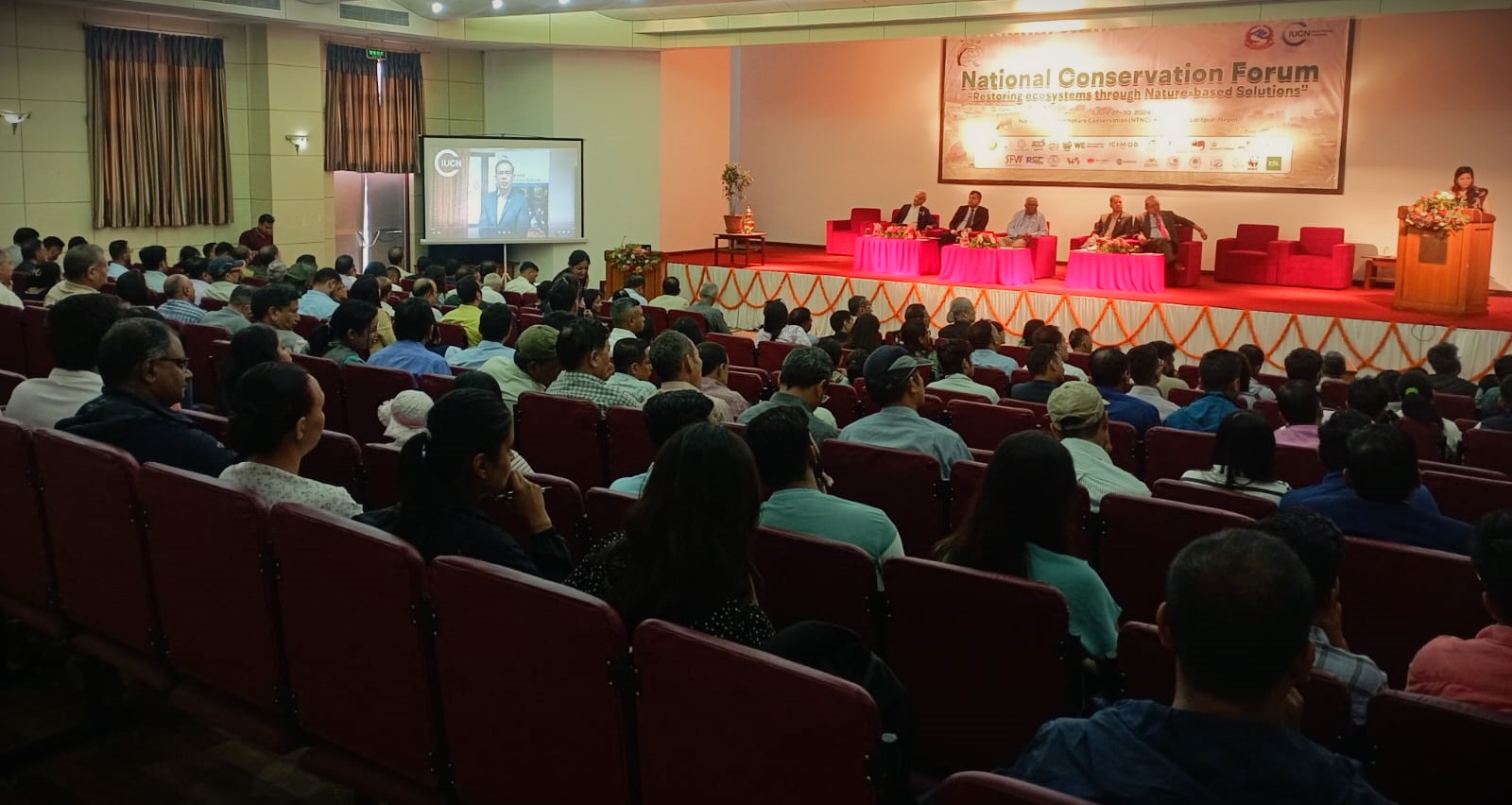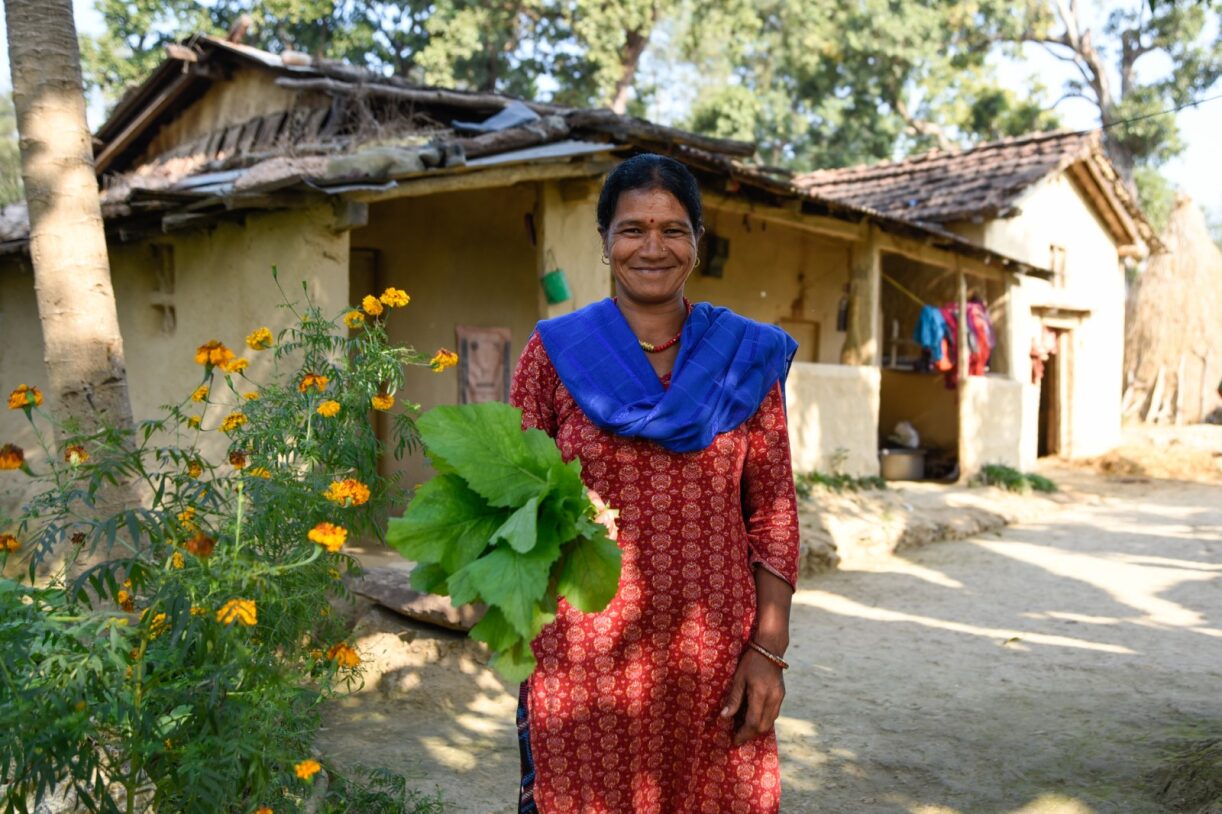Women-led initiative bringing sustainable economic and social development
Women-led turmeric production initiative in the Bungdal Community Forest of Nepal is a great example of how a small group of determined individuals collectively can bring about change in their community.
In the Makwanpur district of central Nepal, women of the Bungdal Community Forest User Group (CFUG) have come together to establish an agroforestry system plot and start producing turmeric on a larger scale with the technical and financial support of the Forest and Farm Facility (FFF) partnership. Turmeric is a member of the ginger family and commonly used as a spice in Nepal, but it is also known for its medicinal purposes. The women have developed a turmeric value chain and formed a turmeric micro-enterprise group consisting of forty members and are actively engaged in turmeric farming. They have expanded from the barren land of community forest at the bank of the Samari river to their private land.
The turmeric farming initiative started with 800 kilograms of rhizome plantation, and within two years, the women have harvested 5000 kilograms of turmeric. The men are supporting the initiative in production processes like harvesting, drying, cutting, grinding and packaging.
 Group members sorting turmeric for drying and further processing.
Photo: Amit Poudyal/IUCN
Group members sorting turmeric for drying and further processing.
Photo: Amit Poudyal/IUCN
Turmeric farming has become popular among the locals because it is not destroyed by wild animals like monkeys and hedgehogs. Turmeric production started by women has evoked interest among locals, and they are hopeful that it will help improve the community's economic situation.
“Being close to the forest, the wild animals always raid the crop like millet or wheat but they do not eat turmeric,” said Chandra Prasad Dulal, Chairperson of the Bungdal CFUG. “This is the primary reason to adopt turmeric farming which is helping economically the poor and marginalized members of the group.”
FFF has helped the women group to improve their income and livelihood. The women have been trained by FFF on turmeric farming, agroforestry development, marketing and value chain development, and have also conducted exposure visits to other turmeric plantation sites. FFF has also facilitated the process of developing an enterprise development plan, which will support the scaling up of turmeric production.
 FFF team interacting with the enterprise group members.
Photo: Amit Poudyal/IUCN
FFF team interacting with the enterprise group members.
Photo: Amit Poudyal/IUCN
“The successful operation of the micro-enterprise group is because of the hard work of the women members, who have scaled up the production and are in the process of building a sustainable enterprise,” said Racchya Shah, Senior Programme Officer at IUCN Nepal and FFF Country Facilitator, “The support from the Forest and Farm Facility programme has been instrumental in providing the necessary technical assistance for the enterprise to flourish.”
Facilitated by the FFF partnership, the group has leveraged its resources to establish a turmeric processing unit. With the increasing production, the producers are looking forward to establishing new market linkages with nearby cities.
“The success of the turmeric farming initiative is a testament to the potential of women-led initiatives in bringing about positive change in their communities,” said Sophie Grouwels, Forestry Officer at the Food and Agriculture Organization of the United Nations (FAO) and FFF Coach. “With the right support and resources, these women have shown that they can play a significant role in the economic and social development of their communities which is in line with the objective of the FFF.”
The encouraging results of their hard work has inspired other women producers to continue and strengthen the enterprise. Other local farmers have now also expanded turmeric farming on their private lands and are contributing to the sustainability of the women-led turmeric processing enterprise.
FFF is a partnership between FAO, the International Institute for Environment and Development (IIED), IUCN and AgriCord.



